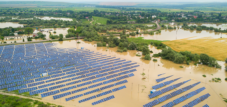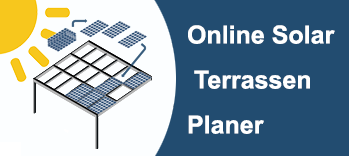The B2C market in the solar system sector has cannibalized itself - Unregulated competition: How the solar market has lost its professionalism
Language selection 📢
Published on: September 19, 2024 / Update from: September 19, 2024 - Author: Konrad Wolfenstein

Chaos on the solar market – Unregulated competition – Risks and side effects of online sales with lead generation – Image: Xpert.Digital
☀️💼 B2C solar market: From specialist companies and the wild growth of the free market
🌞⚡🔥 The B2C market for solar systems has changed significantly in recent years and is facing significant challenges. Originally, the market was dominated by specialized companies that not only provided advice but also professionally installed and commissioned photovoltaic systems (PV systems). But now the situation has changed drastically. The competition in the solar market has almost cannibalized itself, leading to confusing and sometimes unprofessional competition.
📈🔍 The unregulated competition in the PV market
Today there are offers and consulting services for PV systems on almost every corner. Potential customers are courted from social media to private circles of acquaintances. Competition for lucrative sales is fierce. Even students with part-time jobs or housewives and housemen who work from home now offer consulting services. Online marketing agencies have recognized the trend here and have specialized in lead generation, so there is a flood of providers flooding the market with cheap offers.
However, this massive presence of providers does not necessarily lead to a higher quality of services. Although there are more and more advisory services available, the number of actually qualified specialists required to commission solar systems has not increased accordingly. In particular, the shortage of trained and certified electricians who are authorized to properly connect PV systems to the power grid is becoming increasingly clear.
🛠️🔑 Qualified installation as a key issue
According to §13 of the Low Voltage Connection Ordinance (NAV), electrical systems that are installed behind the network connection of a house may only be carried out by installation companies that are registered in the installer directory of a network operator. This means that only certified specialist companies are authorized to professionally connect the systems and put them into operation.
However, it is often not these specialist companies that gain the upper hand in the competition for the sale of solar systems. Instead, online marketing agencies and their part-time “consulting experts” dominate the market, who drive the sales processes forward but do not take care of the installation - and certainly not the professional connection. This is one of the main problems: While sales are booming, the technical and legal requirements often fall by the wayside. The responsibility for the professional connection is then passed on to specialist companies, who often have to deal with the inadequate preparations and false promises of the previous “advisors” and the subsequent installations.
🏷️📉 The price war in the solar market
In addition to these structural problems, the aggressive price war has further destabilized the market. The prices for PV systems are continually falling, which at first glance seems attractive to end consumers. But this price drop also has its downsides. Where previously a specialist company could win an order from three offers, today the ratio is up to 1:10. This means that a company now has to create ten offers to receive an order. The result is an enormous burden on specialist companies who, on the one hand, have to invest in expensive consultations, but on the other hand, in many cases do not achieve any conclusion.
Suitable for:
- Background information on the current situation and developments related to China
- The aggressive export of Chinese cheap modules to Europe and other markets has led to a distortion of global competition
One reason for this development is digitalization. Thanks to advanced technology, potential customers can now obtain countless offers with just a few clicks and receive non-binding advice. The inhibition threshold for obtaining multiple offers is lower than ever before. This means enormous effort for specialist companies, which is not always in relation to the sales achieved.
In addition, there is growing competition from other trades such as roofers and scaffolders who also offer photovoltaic systems. They also usually lack certification for professional connection.
Suitable for:
💻📞 Dubious lead generation business model
The business models of online marketing agencies that specialize in lead generation are particularly problematic. These agencies place targeted advertising in order to generate customer contacts, which they then sell on to solar agencies with their construction crews, mostly from abroad. These supposed “installation and consulting experts,” who often do not have in-depth technical training, focus almost exclusively on sales.
While some of these agencies offer training, the quality of this training often leaves something to be desired. In many cases, promises are made that cannot be kept in practice. Customers are lured with unrealistic expectations, which later lead to disappointment when the system is commissioned. At this point, however, the online marketing specialists have long since moved on to the next potential interested party, and the responsibility remains with the specialist companies.
😠🚧 Frustration among specialist companies and end customers
The result is a high level of frustration among both specialist companies and end customers. The specialist companies are confronted with customers who are disappointed because the promised services were not delivered. In many cases, the specialist companies then have to pay for the damage, even though they were not responsible for the previous advice. This leads to an additional burden on companies that are already under strain.
The situation is also anything but satisfactory for customers. They often feel like they have been duped and, in the worst case, have to live with inadequately installed or poorly dimensioned systems. The problems often only become apparent during commissioning, for example if the feed-in tariff is not as expected or the system does not provide the promised performance.
🏛️🔍 The need for regulation and transparency
In view of these developments, the call for more regulation and transparency in the solar market is becoming ever louder. Clear guidelines are needed to ensure that only qualified experts are allowed to advise, install and commission PV systems. In addition, providers who sell solar systems should be held more responsible for compliance with legal and technical requirements.
It is also necessary to critically question the role of online marketing agencies. Although they offer an important service in customer acquisition, their consulting services should be provided at an adjusted level. Certifications or minimum requirements for consultants could be introduced here to ensure that customers do not receive false promises.
🚀🔄 Opportunities and challenges for the future
Despite the challenges, there are also opportunities for the B2C solar energy market. Demand for renewable energy remains high and with the right regulations and standards the market could stabilize again. Specialist companies that rely on quality and transparency could benefit from an advantage in trust in the long term. Digitalization also offers opportunities if used correctly. Automated processes could help specialist companies work more efficiently and adapt their consulting services to the needs of customers.
The B2C market for solar systems is currently in a phase of restructuring. Competition is fierce and quality requirements are high. In order to be successful in the long term, both providers and specialist companies must rely on transparency, quality and sound advice. This is the only way to regain customer trust and ensure the long-term development of the market.
📣 Similar topics
- 🌞 Changes in the B2C solar market: challenges and opportunities
- 🏠 Solar systems in competition: Unregulated chaos
- 🔧 Installation of PV systems: Why specialist companies are essential
- 📉 Price war in the solar market: what's wrong
- 💼 Lead Generation: A questionable business model
- 😠 Frustration among specialist companies and end customers: What goes wrong
- 🏛️ Call for regulation and transparency in the solar market
- 📈 Opportunities for the future: How quality can prevail
- 🌐 Digitalization in the solar market: curse or blessing?
- 🔦 Transparency and trust: Key to success in the solar market
#️⃣ Hashtags: #UnregulatedCompetition #QualifiedInstallation #Prizefight #LeadGeneration #Transparency
🚧⚖️🔻 When online marketing and digital lead generation are responsible for negative consequences and developments

When online marketing and digital lead generation are responsible for negative consequences and developments - Image: Xpert.Digital
While the number of providers increases, the quality of the services offered often falls by the wayside. This is particularly problematic in an area as technically demanding and safety-relevant as the installation of solar systems. The shortage of qualified specialists, especially trained electricians, who are responsible for connecting systems to the power grid is becoming increasingly clear. Despite the increasing demand, there are not enough certified professionals to carry out installations properly and safely.
More about it here:
We are there for you - advice - planning - implementation - project management
☑️ Industry expert, here with his own Xpert.Digital industry hub with over 2,500 specialist articles
I would be happy to serve as your personal advisor.
You can contact me by filling out the contact form below or simply call me on +49 89 89 674 804 (Munich) .
I'm looking forward to our joint project.
Xpert.Digital - Konrad Wolfenstein
Xpert.Digital is a hub for industry with a focus on digitalization, mechanical engineering, logistics/intralogistics and photovoltaics.
With our 360° business development solution, we support well-known companies from new business to after sales.
Market intelligence, smarketing, marketing automation, content development, PR, mail campaigns, personalized social media and lead nurturing are part of our digital tools.
You can find out more at: www.xpert.digital - www.xpert.solar - www.xpert.plus



























